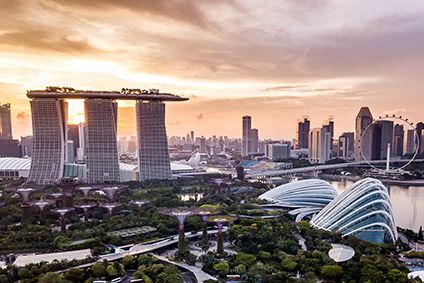
Singapore’s Temasek, a state-owned investment company, is partnering with local firm A*Star to establish a food-tech innovation centre to support start-ups in the areas of alternative-proteins, cell-cultured meat and seafood.
Temasek has signed a memorandum of understanding with A*Star – or the Agency for Science, Technology and Research, which comes under the purview of the ministry for trade and industry – and they will develop the detailed plans for the centre in the “coming months”. It will feature wet labs and kitchens and pilot manufacturing facilities, as well as advisory support in areas such as marketing.

Discover B2B Marketing That Performs
Combine business intelligence and editorial excellence to reach engaged professionals across 36 leading media platforms.
A key aim is to “accelerate commercialisation of promising food-tech” start-ups in the city-state, which is home to companies such as Shiok Meats, Next Gen, Growthwell and TurtleTree Labs. Known more as a global financial centre with limited agricultural land, Singapore is embracing the new technologies to reduce its reliance on food imports, and to that effect launched a new initiative last year.
Temasek is an active investor in the sectors, including US-based Impossible Foods and Memphis Meats, and The China Food Tech Hub formed in 2019 by Shanghai-based venture capital fund Bits X Bites. A host of global food manufacturers have joined the Hub such as General Mills, Danone and Nestlé.
The state investment firm said there is a “need to improve the overall food chain in order to ensure food security for the future” amid predictions the global population will rise to 9.8 billion by 2050 from 7.7 billion. It said Asia alone will have a populous 250 million larger by the end of the current decade, with many younger consumers in the region now demanding more ethical foods that are easy on the environment.
“We are excited by the opportunities in innovative and sustainable solutions in order to produce more with less, as well as produce better food for the environment and better food for us,” Temasek said.

US Tariffs are shifting - will you react or anticipate?
Don’t let policy changes catch you off guard. Stay proactive with real-time data and expert analysis.
By GlobalData




